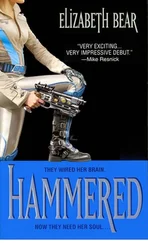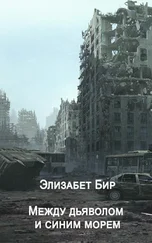I miss cats, but I don’t have a cat anymore. I couldn’t be sure of taking care of one. I’d probably forget to feed her, or not be able to work the can opener, and she’d resort to eating a mislaid finger.
None of it hurts. None of it seems to harm me in any way. Except that I’m falling apart, and a lot of my time is taken up with finding bits of me that have broken away somehow, and sticking them back on again in more or less the spot they came from.
I don’t leave the house the way I used to. I’m glad I live in a time when nearly everything can be delivered.
And sometimesI get misty and confused. I’ll be in the middle of some task and realize three hours later, in another part of the house, that I’ve left it undone. I’ll find my spectacles in the fridge, or my socks on the bookshelf. I’m sure putting them there seemed like a logical idea at the time.
Sometimes also, I’ll find my clothes in a puddle under me on the sofa, and realize that they just kind of drained through me while I was working. I’ll be chopping vegetables and the knife will hit the chopping block and just lie there, and it will be a while before I can manage to pick it up again. My hand will pass through my coffee cup for a while before it solidifies again, and I won’t get to drink it until it’s cold.
At least the pens and notebooks are always solid. Always real. My laptop, too, and I guess that’s logical, because it’s not that different from a notebook in intention. Heck, some people call them notebooks.
Oh, but now. But this time.
I think I did more than get a little misty. I think I forgot something.
I think I forgot something very important. I think I forgot it on purpose, and because I forgot it, something terrible is going to happen. To a lot of people. Not just me.
So I’m falling apart. And I’m losing my mind.
I usedto burn my notebooks.
I didn’t want to be connected to the past they represented. I didn’t want to be connected to the person they represented. I didn’t want to be connected to the me that was.
I wanted to reinvent myself. Each time I made a terrible mistake, I wanted to put everything aside, walk away, move on. I wanted to erase my errors. I wanted to change the past so the bad things had not happened. So I could not be punished for them. So I would not have to feel, all the time, so wrong.
I erased my thoughts, my feelings. My failed loves. The classes where my grades were only average. The abusive family background. The jobs that didn’t turn out as well as I had hoped for, that had toxic office politics, or abusive bosses. I erased the pain, the pain, the pain.
I wrote it all down in hope, and when it didn’t work out, I burned it in despair.
I was trying to erase my mistakes, I suppose. It was a kind of perfectionism. If something has a flaw, throw it out and get something perfect next time. I was trying to move forward, in the hope that the next adventure would end better.
But not learning from the failures.
And so, little by little, I erased myself.
I threw myself away.
I wouldhave been free and clear if I just hadn’t read the newspaper that day. The day they printed the manifesto. I could have gone on about my life and my business in ignorance.
I could have spared myself a lot of grief. And work. And worry.
Grief and work and worry that would have been transferred to other people in my stead. That might still be served up to them if I can’t prevent it.
And if it happens, I will know that it is my fault, because I failed.
The manifesto was in the paper. All the papers, I imagine, not just my specific one. It purported to be written by the group that had been mailing incendiary bombs to universities. Harvard, Yale, the University of Chicago. To their medical colleges.
That niggled at me, and I didn’t think it was just because the University of Chicago was my alma mater. There was something.
Something back there.
Something I had worked very hard to forget.
Not violence, no. But the promise of violence. The expectation of violence.
Is that what people mean when they talk about menace? Something being menacing? That awareness that there is not just the potential for violence, in the abstract, a kind of background radiation that is always there—but that somebody, somewhere, is planning to cause someone harm.
Any long-termrelationship is served by a little amnesia. A marriage—and I’m using the term loosely here, but we were together, if you can call it together, for almost eight years—is a country in flux. A series of negotiations and edges and considered silences. And some unconsidered ones, depending on how self-aware the diplomats in question are. Sometimes all the negotiations are carried out by reflex and instinct. Sometimes this results in war. A covert war, or an open one.
But sometimes, there’s a plan.
When a diplomat who’s acting on reflex, instinct, and conditioned response (diplomat A) meets a diplomat who is acting with self-awareness, caution, and a considered agenda of compromises (diplomat B), (diplomat B) is usually going to win the exchange.
I was (diplomat A) in this example.
I was seventeen years old.
I went in without a theory.
A brokenheart is like a cracked bath tub. Nobody’s going to make a full-price offer on a property with annoying repair problems like that hanging around. So either you fix it yourself, or you try to hide the cracks and cover up the damage. At least until the mark has signed enough paperwork that it’s inconvenient to back out.
Plastic-covered notebooksgive off a terrible smell as they burn.
I wasteda lot of paper.
I was not good at finishing the notebooks. I would reach a point where I was damned sick of who I was, how I had been feeling, how I had been acting. And then I needed to be done with the stained pages I had been writing, because I had written down everything. Everything about my internal landscape, anyway.
I didn’t have friends.
I just had secrets.
And so I wrote them down.
It was actually easier—well, cheaper, anyway—and more efficient—when I was younger. In the three-ring and spiral-bound notebooks, I just ripped out the offending pages and tore them up. Got rid of them. Shredded them and gave them a shove.
But then I graduated to bound books. The cheap fabric-covered ones at first. Then better ones, professional-quality ones, with paper that ink pens did not feather on or bleed through. I liked the hard-covered ones in pretty colors, with ribbon markers and pockets in the back. Graph paper or dot grids. I did not like wide-ruled.
Читать дальше













